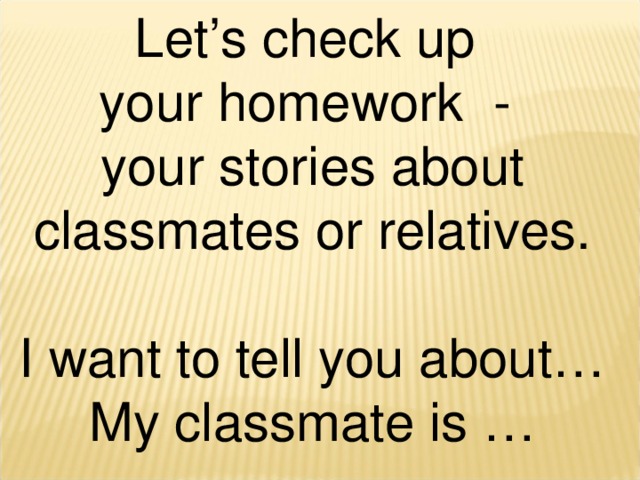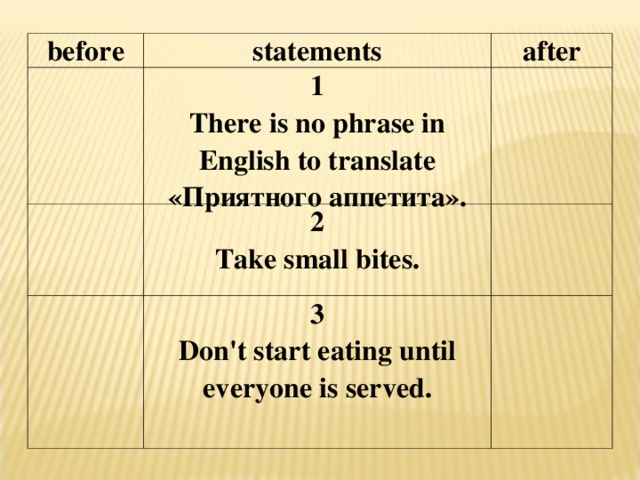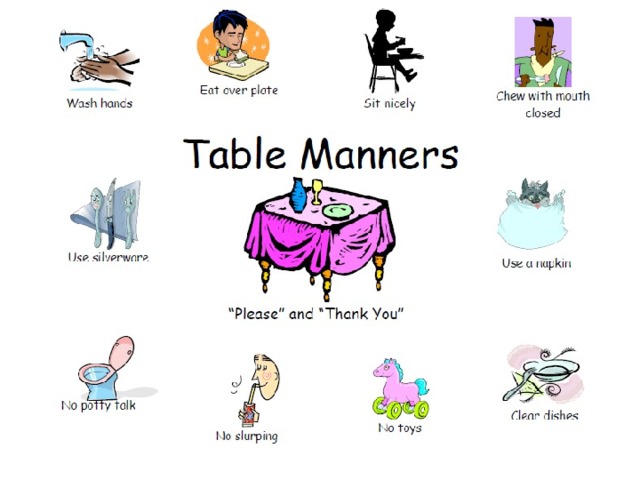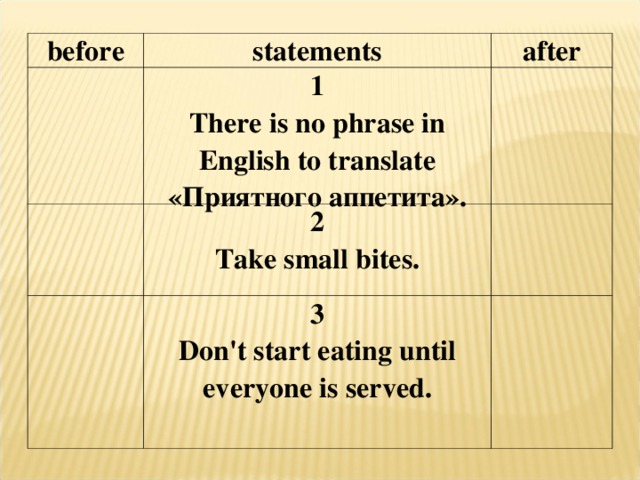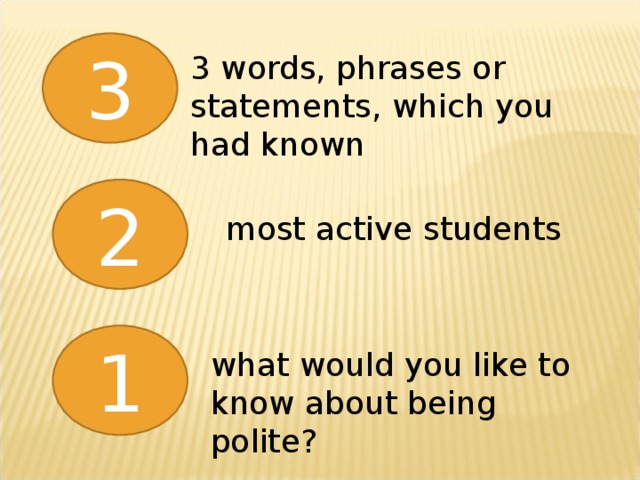Данный материал состоит из конспекта и презентации урока по теме "Будь вежлив" в 6 классе по УМК М.З.Биболетовой. Использование обучающих структур по сингапурской методике обучения позволяет повысить интерес к изучению языка и участие на уроке всех учащихся, независимо от уровня их знаний. Данный урок можно провести и без структур или применить другие обучающие структуры. Также можно составить свои вопросы и для энергайзера. Для эффективной работы во время урока парты нужно расставить так, чтобы учащиеся сидели вчетвером за партой - лицом к лицу (face partner) и пратнеры по плечу (shoulder partner).
Создайте Ваш сайт учителя Видеоуроки Олимпиады Вебинары для учителей
Конспект урока и презентация с использованием обучающих структур по сингапурской методике по теме "Будь вежлив" по УМК М.З.Биболетовой в 6 классе.
Вы уже знаете о суперспособностях современного учителя?
Тратить минимум сил на подготовку и проведение уроков.
Быстро и объективно проверять знания учащихся.
Сделать изучение нового материала максимально понятным.
Избавить себя от подбора заданий и их проверки после уроков.
Наладить дисциплину на своих уроках.
Получить возможность работать творчески.
Просмотр содержимого документа
«урок будь вежлив»
Просмотр содержимого презентации
«будь вежлив»
Полезное для учителя
Распродажа видеоуроков!
1880 руб.
2690 руб.
1880 руб.
2690 руб.
1860 руб.
2660 руб.
1880 руб.
2690 руб.
ПОЛУЧИТЕ СВИДЕТЕЛЬСТВО МГНОВЕННО
* Свидетельство о публикации выдается БЕСПЛАТНО, СРАЗУ же после добавления Вами Вашей работы на сайт
Удобный поиск материалов для учителей
Проверка свидетельства


![[n] - responsible [p] - polite [r] - brave [ai] - kind [t] - creative [f] - friendly](https://fsd.kopilkaurokov.ru/uploads/user_file_53a1d40c1ed10/img_user_file_53a1d40c1ed10_0_2.jpg)
